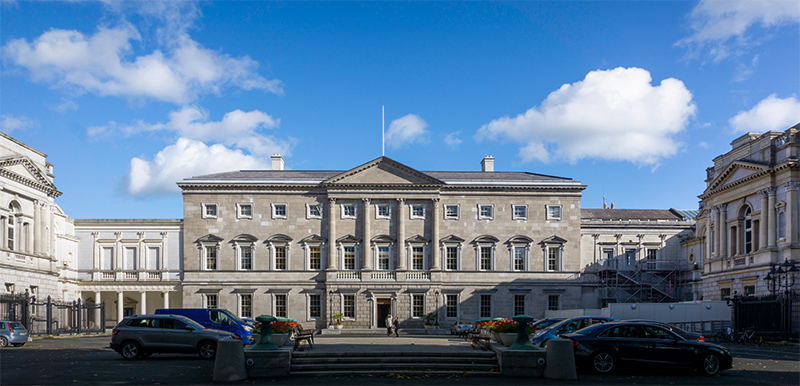
Irish Govt research: ‘non-affirming attitude’ is ‘conversion therapy’
| by James Kennedy James works in public affairs for The Christian Institute and is part of the Let Us Pray campaign. |  |
Governments around the world are under pressure from LGBT activists to write broad conversion therapy bans into law.
The Irish Govt has committed to doing so, but Roderic O’Gorman, the Republic of Ireland’s Minister for Children, Equality, Disability, Integration and Youth, said research needed to be done first.
The research O’Gorman had been waiting for was published several weeks ago. As usual in this area, it is deeply flawed.
“no evidence whatsoever of conversion therapy in Ireland”
There are two parts to this study. Firstly, a narrative review of previous papers, and then an original interview-based study.
The intention of a narrative review is to describe the general impression given by a cross-section of academic papers. In this case, a selection of 23 papers was used after over 150 were screened out. Of these, only one contained any data from Ireland. None of these Irish participants had been exposed to ‘conversion therapy’.
That means the narrative review presents no evidence whatsoever of conversion therapy in Ireland.
Worse still, it is entirely uncritical of the claims presented by previous studies, despite the substantial number of flaws.
Definitional problems abound. For instance, how can the Irish Government possibly consider legislation based on the bewildering claim that conversion therapy includes “heterosexism and cissexism which can occur in everyday interactions” and “informal … practice[s] such as prayer and other spiritual activities”?
Will new legislation outlaw the “general unsupportive and non-affirming attitudes” towards LGBT people that the same paper claims are conversion therapy? These claims deserve disdain, or at least scrutiny, yet the researchers accept them without question.
The summary offered of another study claims that conversion therapy ‘techniques’ include: “confessions, repentance, faith declarations, fasting, pilgrimages, Bible reading…” But to suggest that ‘Bible reading’ is an abusive ‘technique’ is a truly extraordinary claim that demands interrogation. It gets none.
“spoke to only five self-professed ‘survivors’”
Despite how poor the narrative review is, it is even more shocking how meagre its own interview-based study is. The researchers admit that they spoke to only five self-professed ‘survivors’ of conversion therapy in Ireland.
We mustn’t just dismiss the claims of these five. But since this research was commissioned to help write new laws, consideration has to be given to the relevance of each subject’s experience. Are these really experiences which can inform new criminal law?
In one instance, an interviewee reported how they had experienced “completely self-created and self-imposed conversion therapy of trying just different formulas of prayers and litanies and different devotions and things”. That sounds similar to the ‘conversion therapy’ experienced by many of those surveyed in the debunked Ozanne ‘Faith and Sexuality’ survey. However you want to describe it, ‘praying for yourself’ cannot be outlawed.
Conversion therapy taking place in Ireland
So what does this research show us? Other than showing us that the researchers are so heavily influenced by LGBT ideology that they have forgotten how to research, it demonstrates remarkably little.
It was expected to determine whether or not abusive practices are taking place in Ireland. Yet instead it presents us snippets from just five case studies, some of which could never be legislated against.
Few will read to the end of this research paper. But if they do make it that far, they will find this admission:
“…the sample sizes for both the survey and interviews are small. The survey used a non-probability sample and is therefore not statistically representative of the wider LGBTI+ community. Similarly, the findings from the interviews are not generalizable…”
In layman’s terms: the research tells us next to nothing. It’s little better than stopping a random person on the street and asking for their opinion. Hopefully the Irish Government realises this before it further advances this ludicrous legislation.
Sex Matters responds to Stonewall’s ludicrous “conversion” claims
2025-05-14 07:17:58
